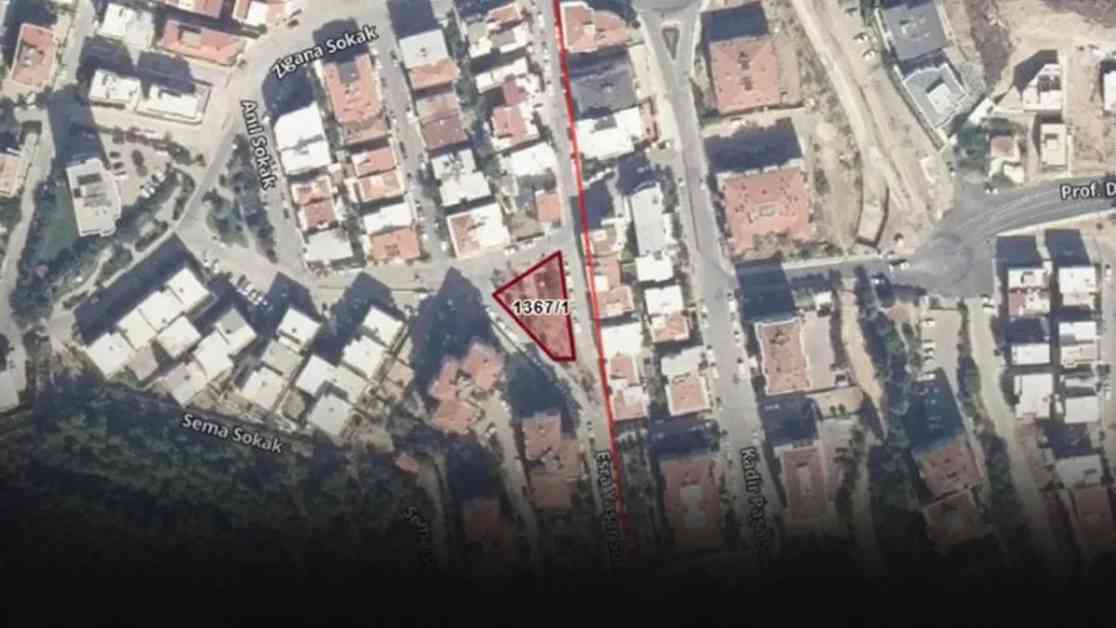Debt Crisis in CHP-led Municipalities: Balçova Follows Bayındır and Narlıdere
The Cumhuriyet Halk Parti (CHP) led municipalities in Turkey are facing a severe debt crisis that they are struggling to overcome. Unable to pay off their debts, these municipalities have resorted to selling off their properties one by one. Following in the footsteps of Bayındır and Narlıdere in Izmir, the CHP-led Balçova Municipality has now decided to sell off its properties as well. Recently, Balçova Municipality announced that it will be putting up a plot of land in the Teleferik neighborhood for sale at a starting price of 32 million Turkish lira.
In an effort to dig themselves out of the debt hole they find themselves in, the CHP-led municipalities in Izmir have chosen to auction off their properties rather than focusing on saving. This has led to a competitive atmosphere among these municipalities as they rush to sell off their assets before the start of the new year. With new sales announcements coming in daily, the trend that started with Bayındır and Narlıdere continues with Balçova Municipality joining the fray.
The auction for the sale of the property in the Teleferik neighborhood, owned by Balçova Municipality, is set to take place on November 28th at 14:00. The starting bid for the property has been set at 32,106,000 Turkish lira. Balçova Municipality currently has a debt of 206 million Turkish lira to the Social Security Institution (SGK).
Impact on Local Residents
The decision by CHP-led municipalities to sell off their properties to pay off debts has raised concerns among local residents. Many are worried about the potential impact this could have on their neighborhoods and communities. Selling off valuable properties could lead to changes in the landscape of these areas, affecting the quality of life for residents.
Furthermore, the sale of municipal properties could also have economic implications for the local economy. The loss of these assets could hinder future development projects and infrastructure improvements that are vital for the growth and prosperity of these municipalities. It remains to be seen how these sales will ultimately impact the residents of Bayındır, Narlıdere, and Balçova.
Transparency and Accountability
As the CHP-led municipalities in Izmir move forward with the sale of their properties, questions have been raised about the transparency and accountability of these transactions. It is essential for local governments to ensure that these sales are conducted in a fair and transparent manner, with proper oversight to prevent any potential corruption or misuse of funds.
The public has the right to know how these sales are being conducted and what the proceeds will be used for. It is crucial for the municipalities to provide clear and detailed information about the sales process, including how the starting prices are determined, who the potential buyers are, and how the proceeds will be allocated to address the debt crisis.
Looking Ahead
As the debt crisis in CHP-led municipalities in Izmir deepens, it is clear that tough decisions need to be made to address the financial challenges facing these local governments. While selling off properties may provide a temporary solution to alleviate the debt burden, it is crucial for these municipalities to focus on long-term financial planning and sustainability.
It is essential for the municipalities to explore alternative solutions to manage their debts without compromising the well-being of their residents and the future development of their communities. Collaborating with financial experts, implementing cost-saving measures, and prioritizing investments in key areas can help these municipalities navigate through this crisis and emerge stronger in the long run.
In conclusion, the debt crisis in CHP-led municipalities in Izmir serves as a stark reminder of the financial challenges facing local governments in Turkey. It is imperative for these municipalities to prioritize transparency, accountability, and long-term planning to effectively manage their debts and ensure the well-being of their residents. Only through careful consideration and strategic decision-making can these municipalities overcome the current crisis and build a sustainable future for their communities.





















